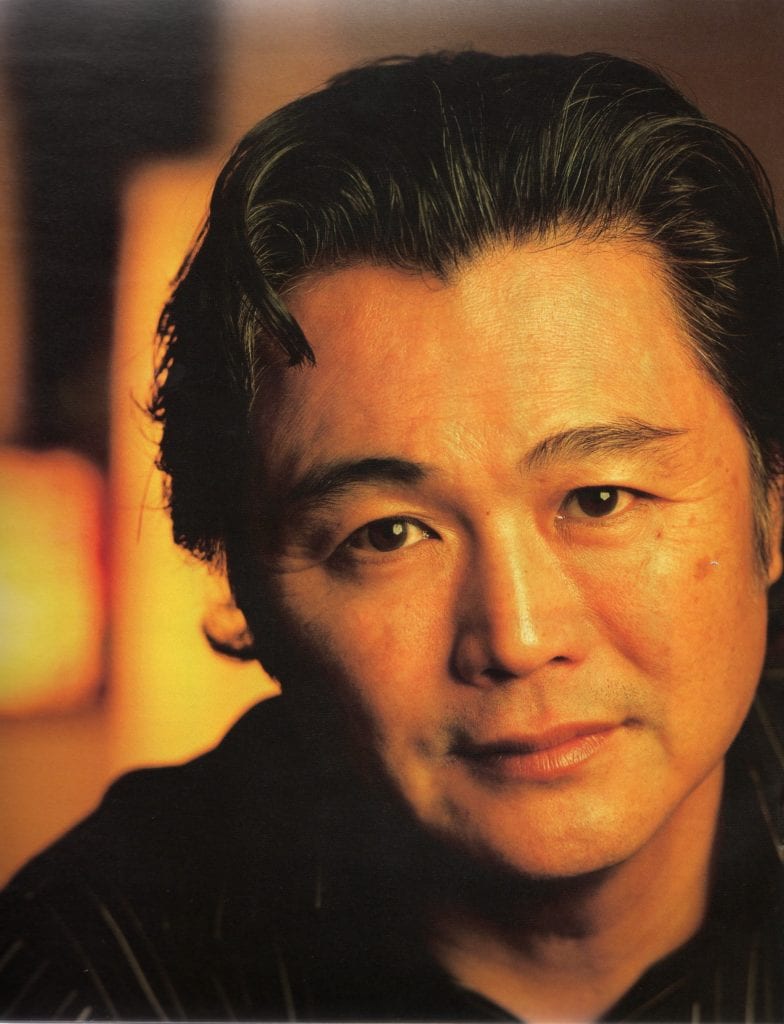
Each day leading up to the 2019 Minnesota Book Awards Ceremony, we’ll be featuring an exclusive interview with one of our 36 finalists. Learn more about these incredible local writers and gear up to see the winners announced live in person April 6.
Interview with David Mura, author of A Stranger’s Journey: Race, Identity, and Narrative Craft in Writing
Category: General Nonfiction, sponsored by College of Saint Benedict/Saint John’s University

How does it feel to be a Minnesota Book Award finalist?
I am honored to be a finalist and to be listed among the other talented authors who have been nominated.
Tell us something about your finalist book that you want readers to know.
One purpose of A Stranger’s Journey is to make the case for a more inclusive and expansive definition of craft in creative writing, particularly concerning the issues of identity and race. I argue that writers of color cannot be properly understood or evaluated without an understanding of the literary traditions, communities and history that provide the context for our work. At the same time I want white writers to see that a refusal to examine the issues of race and identity constitutes not only a willed ignorance but can lead to failures of craft and an inability to confront the growing diversity of American literature and society.
At the same time, the book also provides a guide to narrative structure and technique in fiction and memoir. In fiction we create story; in memoir we discover story. But in either genre, I am constantly confronted with students, some of whom even have MFA’s, who have not been taught the basics of story. Books on fiction writing also often neglect this area. So in A Stranger’s Journey, I’ve culled material from my own teaching and from books on myth, playwrighting and screenplays which do go over narrative; I then demonstrate how they’re working in works of fiction and memoir.
Let us know a little bit about your writing life. What brought you to a writing career and how did you become a published author?
I originally thought I was going to go to law school, but between my junior and senior year of college, I had a summer job at an insurance company where I hid poetry books in my desk. I realized that if I became a lawyer I was going to hide those books for the rest of my life.
I sometimes say that I became a writer because I hate to be bored, and the great thing–and the difficult thing–about writing is that your next book or work always involves a new struggle, new learning, new tests, and often a new subject.
I got kicked out of English grad school for seven incompletes, and I clearly had a problem with writers’ block. Then I read William Stafford’s Writing the Australian Crawl where he says the key to writer’s block is to lower your standards. I often repeat that lesson to my students.
My first poetry book, After We Lost Our Way, was a winner in The National Poetry Contest and so was published by Penguin Books as part of that contest.
Minnesota is often ranked highly as a state that values literature and reading. In your experience, what is it about our state that makes it such a welcoming place for writers and book creators?
We have so much support here for the arts from government, private and corporate funders, and this has helped both individual artists and arts organizations, like the Loft, Graywolf, Coffee House, Milkweed and New Rivers. At the same time, in part because of our shifting demographics, there’s been an increasing diversity in our community of writers, particularly among authors of color. I also feel that the yoking of art and social activism here is quite strong, and certainly this is true for communities of color. Finally, we’re also a great place for theater and playwrights; as an Asian American writer, I’m always proud to talk to those in other parts of the country about the accomplishments of Theater Mu.
What is something you are good at that few people know about?
I play piano, mostly improvisation, and I’m a decent golfer. Also I played the King in the Bloomington Civic Theater’s version of “The King and I” and my cousin Paul Nakauchi, who’s a professional singer and actor, also played the King in the London version.
What do you love about libraries?
I love the fact that libraries serve the public and are open to all. So many working class writers and writers of color have benefited from libraries. I think of friends like Bao Phi who talks about hanging out at the Franklin Library as a kid, just like I hung out at libraries as a kid.
About David Mura
David Mura is the author of two memoirs, Turning Japanese, which won the Oakland PEN Josephine Miles Book Award and was a New York Times Notable Book, and Where the Body Meets Memory. His novel, Famous Suicides of the Japanese Empire, was a finalist for the Minnesota Book Award, the John Gardner Fiction Prize and Virginia Commonwealth University Cabell First Novelist Award. His four books of poetry include the National Poetry Contest winner After We Lost Our Way, The Colors of Desire, which won a Carl Sandburg Literary Award, Angels for the Burning, and The Last Incantations. His newest book is A Stranger’s Journey: Race, Identity and Narrative Craft in Writing, published in 2018.

